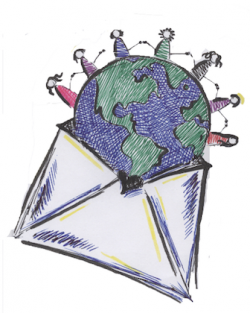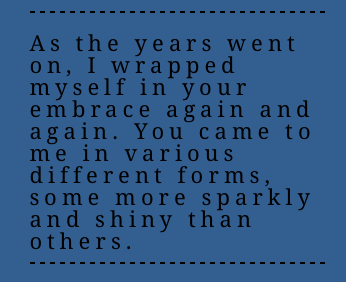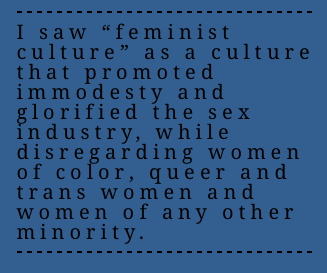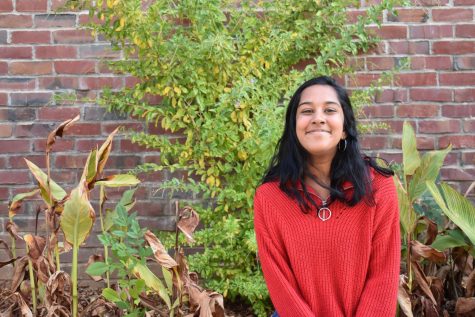Dear Feminism: A Love Letter to a fierce friend
A letter to my fierce friend

September 26, 2018
Dear Feminism,
I remember the first time we met like it was yesterday, only I didn’t know your name or what you stood for at the time. I apologize on behalf of my third grade self, as I wasn’t (and still am not) the most observant person. I do remember sitting in class, happily reading in the corner, when this boy came and sat near me. Now, I would’ve rather eaten brussel sprouts with every meal for the rest of my life than initiate a conversation. Yet curiosity got the best of me, as I caught him picking up “Junie B Jones and The Stupid Smelly Bus” out of the corner of my eye.
My momentary hesitation and fear of human contact vanished as I got up to sit next to him. Before I could say anything, he quickly stuffed the book back into the bookshelf as his so-called “friends” approached. I remember them sauntering towards us in V formation, in all their 8-year-old glory. His attempt at hiding his love for what I then considered classic literature was in vain, because the leader of their pack was quick to point and laugh, urging all of his goons to join in.
“Look! He’s reading a GIRL book!” he exclaimed, and my soon-to-be friend looked down at his hands and picked at his skin in shame.
I remember a peculiar feeling of rage creeping up from the pit of my stomach and intertwining itself in my ribcage. The way that boy said “girl” like it was akin to profanity, made me feel disgusting. It was the first time I’d felt that feeling, but it wouldn’t be the last. It forced me to clench my skirt in my fists as I slowly got up to face the group.
“There is No. Such. Thing. As a GIRL’S BOOK!” I bellowed, with a lot more strength in my tiny 4’3” body than I expected. I didn’t know it at the time, but I realize now that you were the one that gave me that strength. You stood by me and gave me a voice I could use to fight for what I believed in.
As the years went on, I wrapped myself in your embrace again and again. You came to me in various different forms, some more sparkly and shiny than others.
 You were embodied in the fictional characters I looked up to — Hermione Granger, Annabeth Chase, Katniss Everdeen — the classic females on screen and paper that showed me and my female peers that we didn’t have to be the dainty, agreeable princesses that needed to be rescued all the time. They showed us it was okay to be messy, loud, smart, controversial and self-reliant.
You were embodied in the fictional characters I looked up to — Hermione Granger, Annabeth Chase, Katniss Everdeen — the classic females on screen and paper that showed me and my female peers that we didn’t have to be the dainty, agreeable princesses that needed to be rescued all the time. They showed us it was okay to be messy, loud, smart, controversial and self-reliant.
You were embodied in the women on TV who stood up for their rights and equality against all odds. Women like Malala Yousafzai, who was shot to be silenced but instead rose up and fought 10 times harder for the right to an education for all women. Women like Serena Williams, who withstands some of the most misogynistic remarks in the sports industry and still serves as a role model to millions of girls around the world, encouraging them to be anything and everything they want to be. Women like Emma Watson, who didn’t just teach girls that they could be smart, beautiful, kind and outspoken by playing Hermione in the Harry Potter films, but also through her avid activism in all of her projects outside the movie theater. Women like Rowan Blanchard, someone who’s 16 with a platform that reaches millions, who isn’t afraid to speak about sexual identity and intersectional equality and topics that adults claim we’re “too young” to have an opinion on.
You were embodied in the women of our history books, through Susan B. Anthony and Joan of Arc and Indira Gandhi and tons of other women who’ve paved the way for the world we live in.
You’ve inspired so many people and have created so much positive change, but I still need to acknowledge the darker side of you. There have been, and still are, many people who’ve fought for the wrong things in your name. Your name stirs up a lot of controversy and shame, for reasons that all boil down to one thing: People think you’re overrated. They think you’ve been changed and morphed into something ugly, something not worth fighting for. People, men and women alike, claim they don’t need you because we now live in a world where the fight fo

r equality isn’t necessary anymore. They think people who fight in your name, especially people like me who are privileged and live in first world countries, are making a big deal out of nothing.
At one point, I was one of those people. The only ideals relating to you that I was exposed to were ideals promoting misandry over equality, encouraging the invalidation and degradation of men. I saw “feminist culture” as a culture that promoted immodesty and glorified the sex industry, while disregarding women of color, queer and trans women and women of any other minority.
Thankfully, now I’m able to acknowledge the ugly sides of you and still call myself a proud feminist. I’m able to promote ideas of equity and equality for all, regardless of race, gender or sexual identity. Your name, to me, means “the radical notion that women are people,” as so eloquently phrased by activist Cheris Kramarae. You’ve helped me realize that my gender doesn’t define or dictate any roles that I need to play in society, and you give me the strength I need to use my voice to fight passionately for what I believe in. For that, I need you, I thank you, I love you.
Love, Lakshanyaa



























